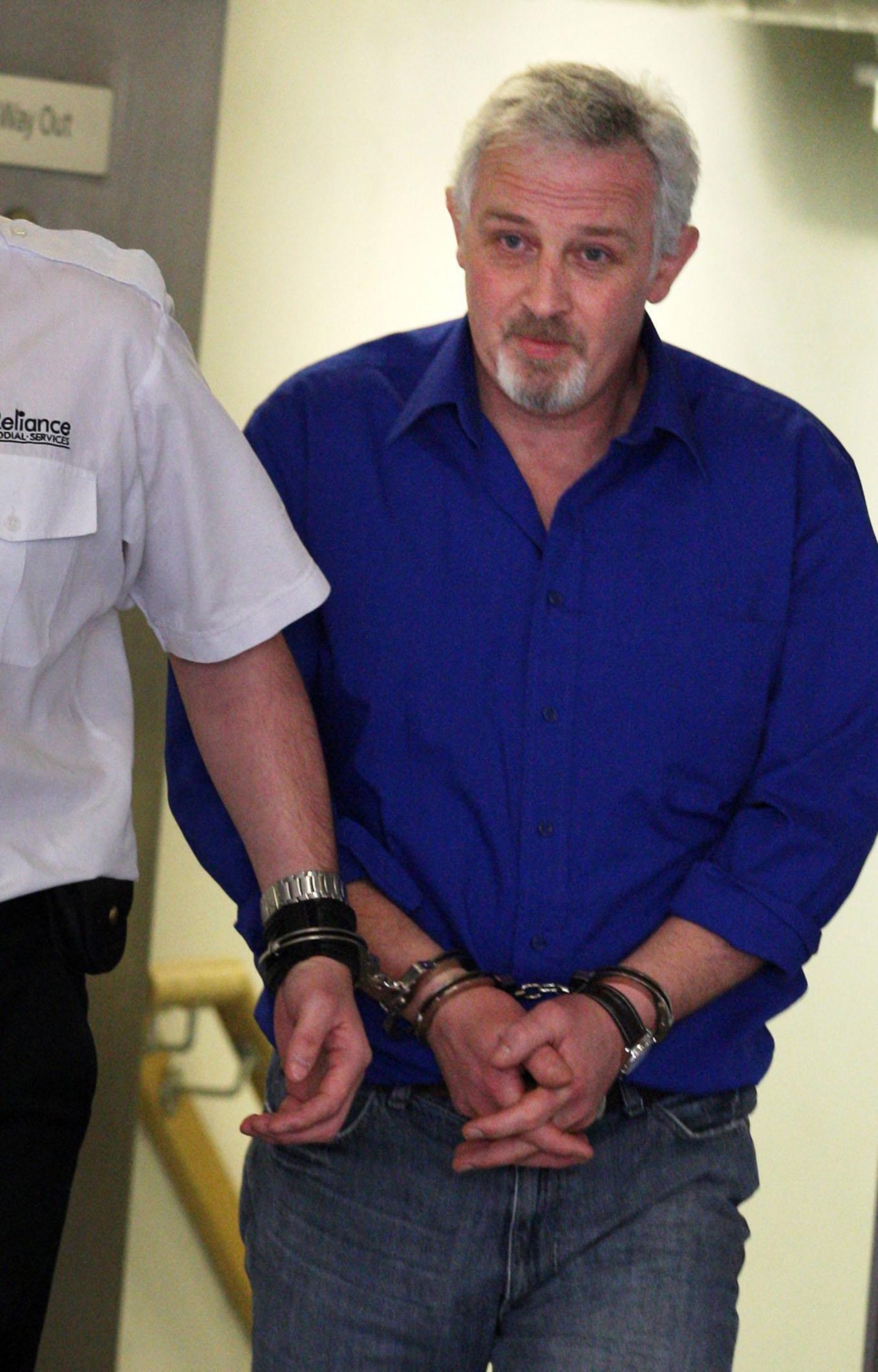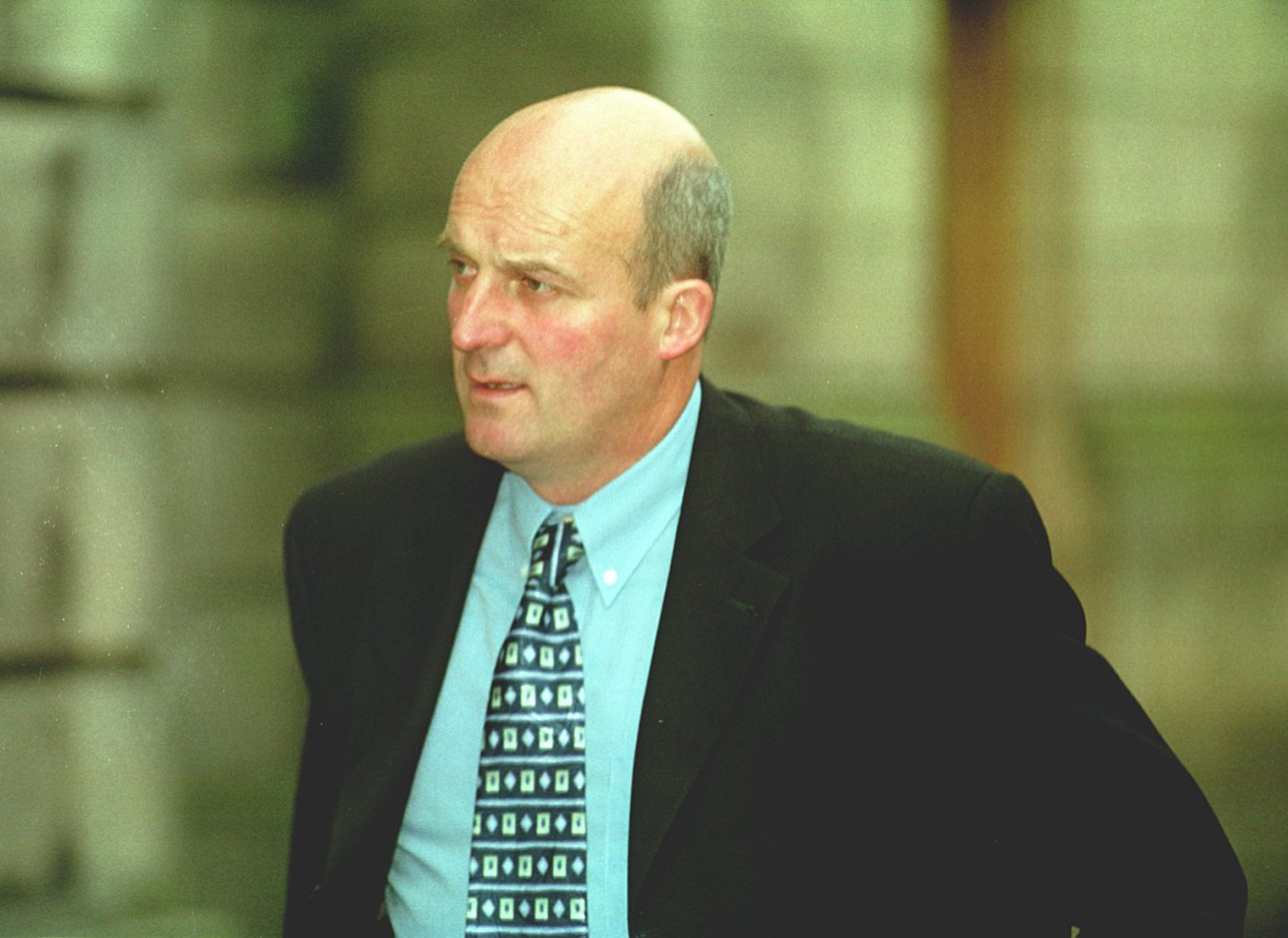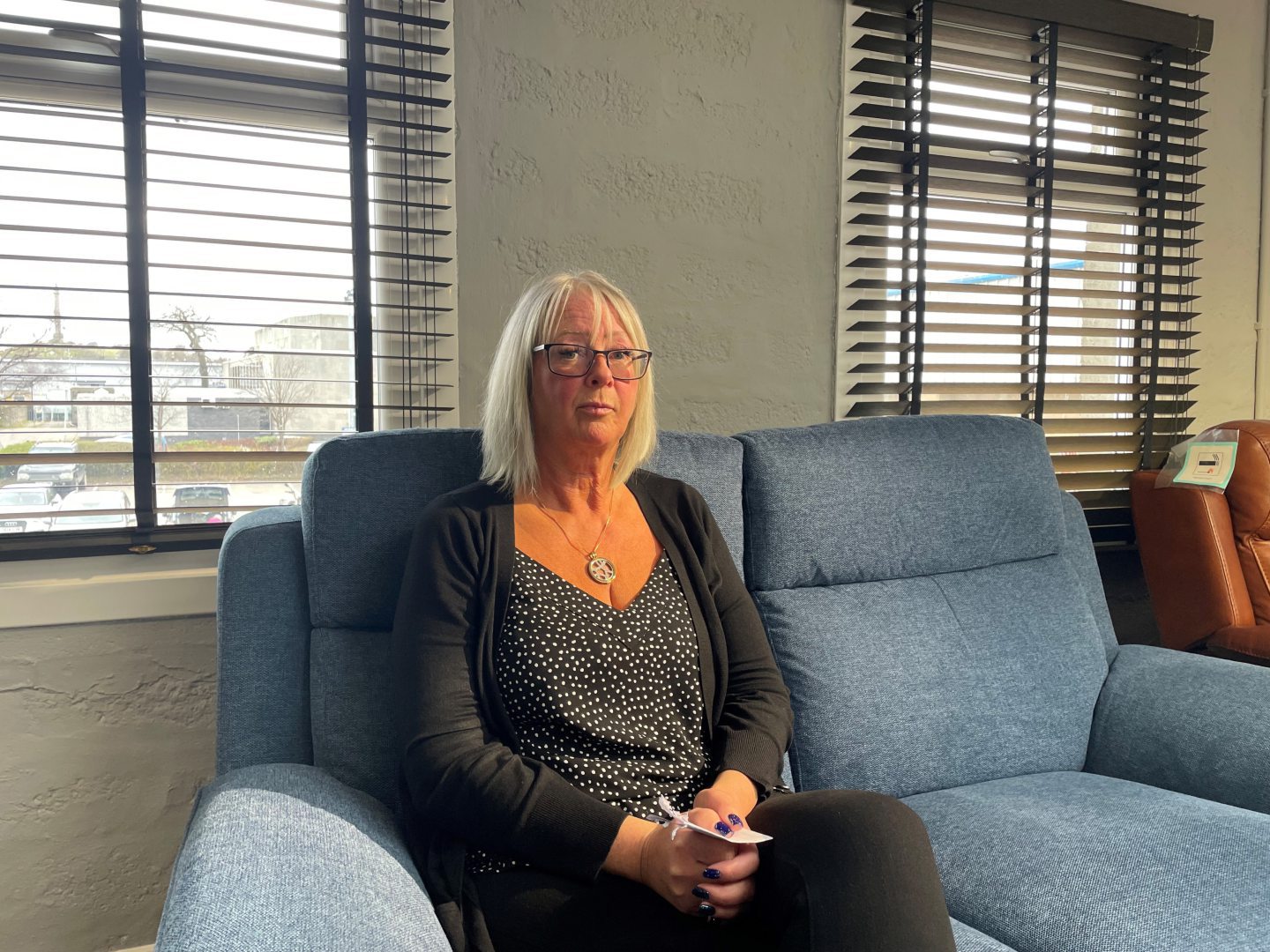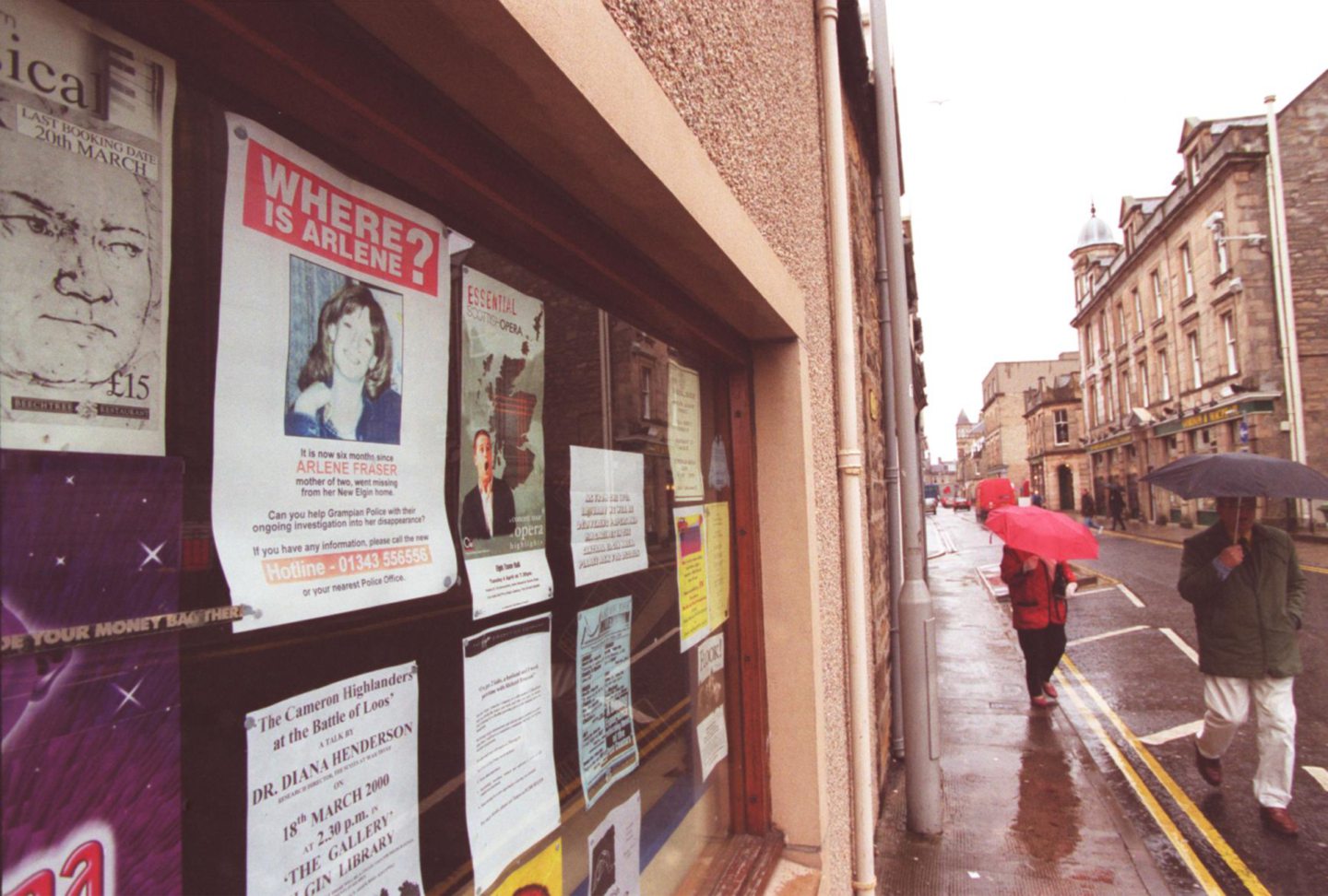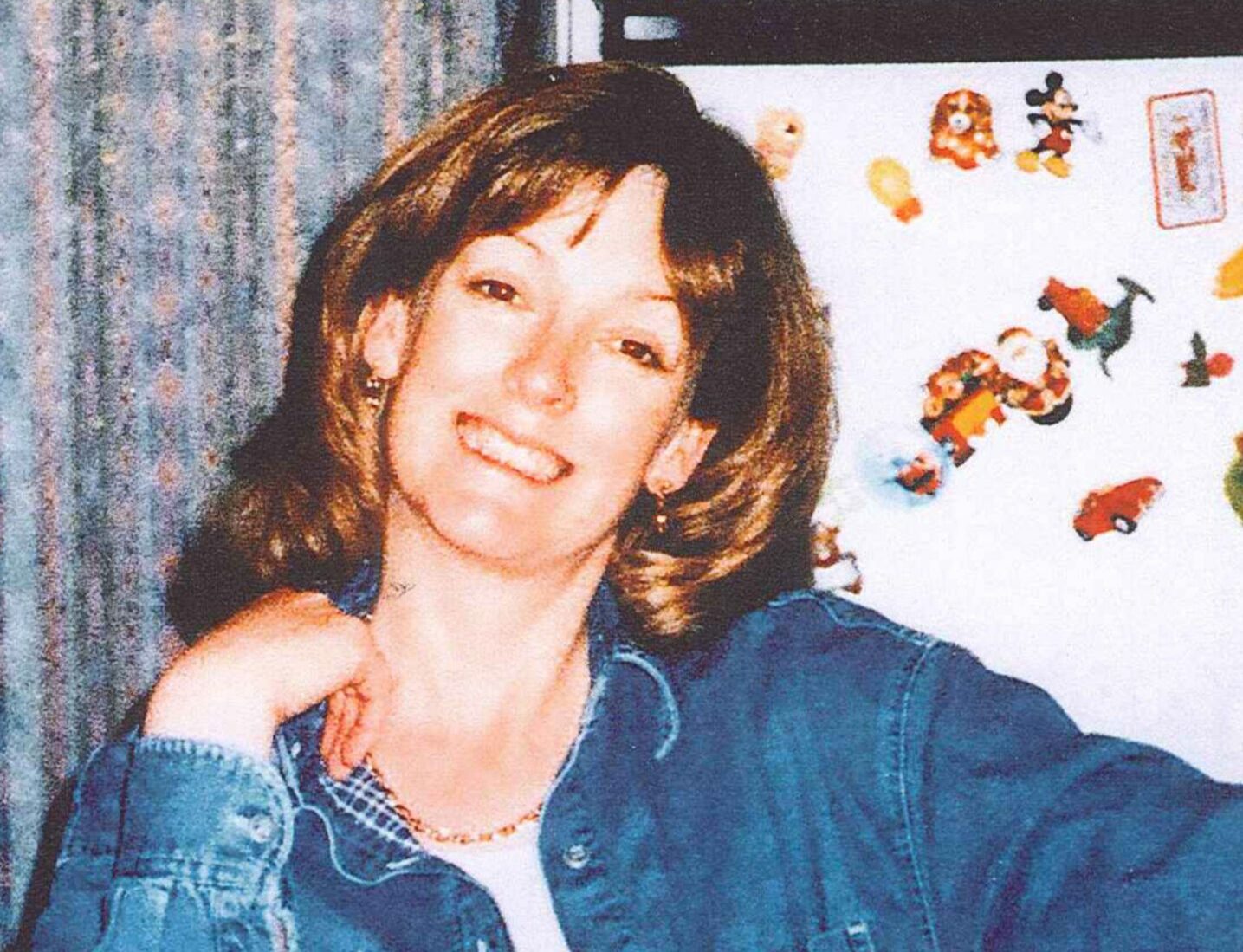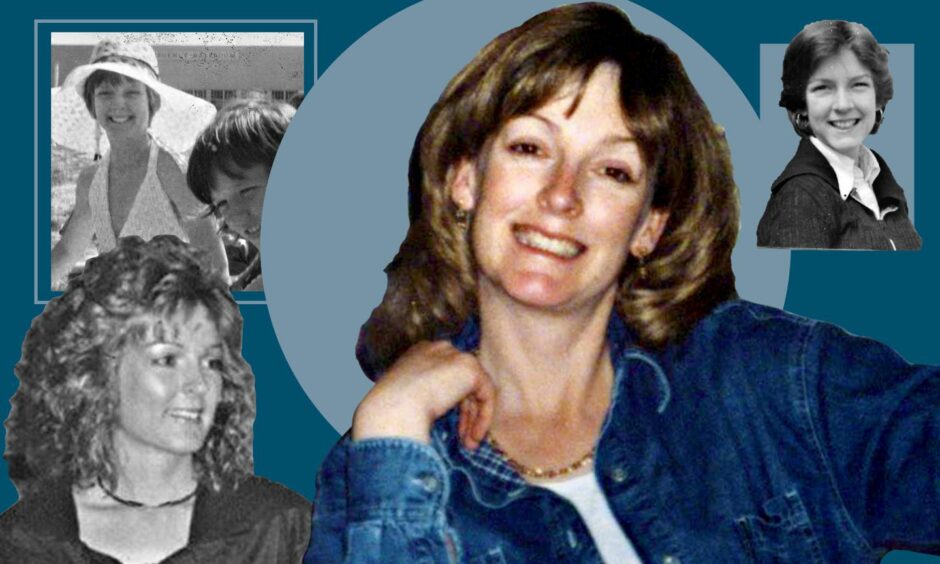
In the first four parts of this series, we heard how 33-year-old mum of two Arlene Fraser went missing on April 28 – 25 years ago this week.
And after one of the biggest murder investigations Scotland has seen the police and the Crown finally had their man…or so they had thought.
Nat Fraser was initially jailed for life for murder – but the evidence was questioned and the conviction quashed, paving the way for a retrial.
Former Detective Superintendent Alan Smith, who was the deputy senior investigations officer on the case, said: “There was immense relief that the Crown had the appetite to re-indict Nat.
“Because cases like this were rare there was so much we didn’t know.
“We didn’t know how they would re-convict him and use the same evidence twice.
“It was pioneering stuff.
“For all we know, it would have been very easy for the Crown to say ‘we gave it a fair chance but we won’t proceed’.
“That decision injected a lot of life into the investigation.”
Nat had again been freed from custody for the best part of a year, but was remanded on the first day of the new trial.
It is understood police kept track of his movements during that time to see if he was socialising with anyone of interest to them.
But the endeavour turned up nothing.
Nat Fraser’s second trial begins
The second trial began at the High Court in Edinburgh in April 2012 – 14 years after Arlene was murdered.
Prosecuting was Alex Prentice KC, who spoke to us for this series to provide an insight into how he went about tackling such a notorious and challenging case.
Mr Prentice is one of – if not the – most prominent prosecutor in Scotland and has taken on some of the biggest cases in Scottish history.
He was prosecuting Nat at the same time as prosecuting David Gilroy, who was found guilty of murdering Edinburgh bookkeeper Suzanne Pilley whose body was never found, like in the case of Arlene Fraser.
Mr Prentice told us: “I was working on those cases either at the same time or back to back.
“The Arlene Fraser case was very high-profile.
“I did remember the first trial, but I was not a prosecutor at that time.”
The prosecution had its work cut out.
First, it had to contend with not having a body or a crime scene.
Second, it could not raise evidence that had been heavily scrutinised after the first trial.
And third, it had to decide what to do with Hector Dick.
Dick, a Moray farmer and close friend of Nat, had been charged with having a role in Arlene’s murder but the charge was dropped during the first trial and Dick agreed to give evidence against Nat.
Mr Prentice had to decide whether to call Dick as a witness, knowing he was unreliable, or risk letting the defence call Dick to the stand to try to poke holes in the case.
Mr Prentice said: “It was obvious he was going to be called, whether I called him or the defence called him, so I thought ‘I’ll just call him as part of the Crown case’.”
Some people questioned Dick’s motive for giving evidence against Nat.
During the first trial, Dick claimed the tax man threatened to fine him £250,000 for evading VAT on bootlegged alcohol and had agreed to rip up the fine if he gave evidence against Nat.
But that claim has been rubbished by several sources with close knowledge of the case.
Mr Prentice said: “As far as I’m aware, there’s absolutely no basis for that whatsoever.
“I do remember the questions about the HMRC issue. I’m not aware of any of that and frankly don’t think it happened.”
The more likely motive for testifying, said Mr Prentice, was that it gave Dick immunity from prosecution.

Mr Smith added: “No way was Dick offered a way out of a fine.
“The Crown would never sanction anything that even whiffed of bribery.
“I’ve no doubt the only incentive he would have been given was to come off the indictment.
“What Dick wanted to do was to create an excuse to the community back in Elgin.
“He was just justifying having dobbed Nat in it.
“That was the biggest decision he made in his life, to turn Queen’s evidence.
“Creating this mythical £250,000 tax liability evasion was a great way of explaining it away – because the guys in the pub would have done the same.
“He was creating a back story that didn’t exist.”
Summing his evidence, Mr Prentice told the jury they might choose not to believe much of what Dick said.
In the event, there was other evidence to convince them of Nat’s guilt.
Mr Prentice told us: “Arlene just suddenly disappeared in the midst of doing the housework at home and arrangements had been made with children and with meeting people.
“So suddenly she is plucked out into thin air, which was out of character.
“There’s no way in which she would plan to leave in those circumstances.
“That in itself suggested that something malevolent was at hand and then you look at the conduct of those who may be responsible.
“One view of the evidence was that Nat’s alibi was a bit too obvious because he made a point of noticing the time when he spoke to people.
“When one looked at the possible motive behind the killing, the benefit from her disappearance and death and the whole circumstances – including the relationship with the other alleged participants in the case – then that all came together to provide a fairly compelling case.”
Second guilty verdict for Nat Fraser
The jury retired and Arlene’s family found themselves in the same position as nine years earlier – walking back into court after hearing the bell to say the jurors had returned a verdict.
With them that day was Mr Smith, who said: “It was a bit less suspenseful because we’d been through the first one.”
The verdict was guilty, sparking celebrations in the public gallery.
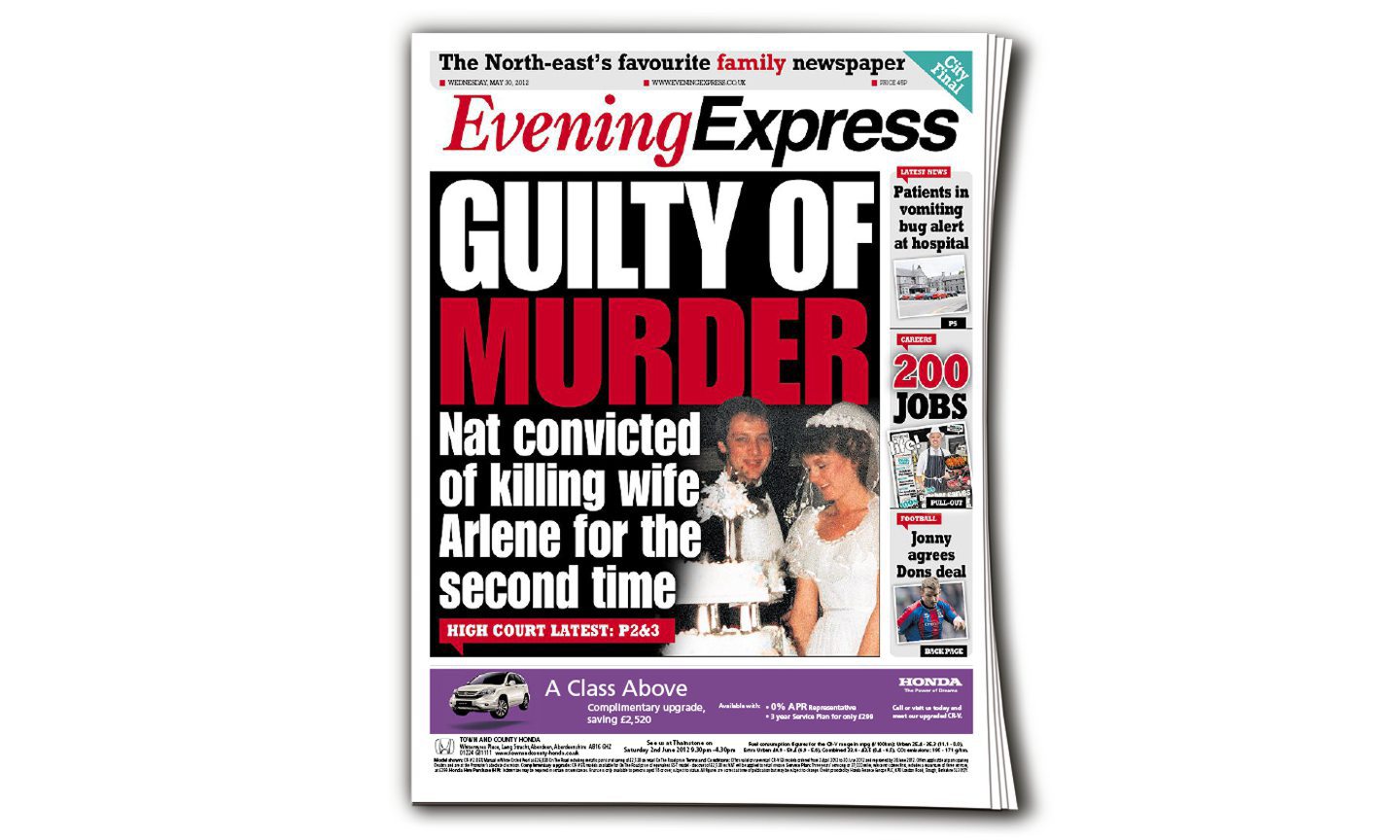
“That was a moment to remember,” said Mr Smith.
He added: “It came out that Nat had made a big mistake.
“Nat had made a huge play to anyone who was willing to listen that Arlene had run off with all his money – that he had this stash of cash in the wall and she took it.
“It emerged that in fact Arlene had had to borrow money off someone, which shows Nat’s yarn was inaccurate.”
Arlene’s friend Marion Taylor told us: “She borrowed the money from someone at college.
“They wouldn’t have known her background with the domestic abuse so it would have been less embarrassing, and Nat wouldn’t have known them, so she would have felt safe doing that.”
In May 2012, Fraser was jailed for life with a minimum sentence of 17 years and he got no joy with an attempted appeal.
It means he cannot apply for parole until 2029, when he will be aged 71.
Arlene’s best friend Michelle Scott said: “After the second conviction, I felt relief, like that’s going to be the end of it and he will serve his sentence and there’ll be nothing else.”
Bar two incidents – in 2013 and 2018 – when Nat was caught with mobile phones in prison, his record behind bars has been good.
Mr Smith said: “I imagine he’s had quite a comfortable time.
“He’s seen as a father figure in jail. People like him. He does guitar lessons.”
If the parole board is impressed in 2029, Nat could be back on the streets of Elgin.
Campaigning for change
But Arlene’s family and friends are campaigning for a change in the law which would keep him behind bars unless he reveals where her body is buried.
This is known as Suzanne’s Law in the name of Suzanne Pilley, as her body has also never been found.
Politicians have shown a partial willingness to adopt it – but not a full one.
A Scottish Governments spokesman said: “We are committed to ensuring victims’ rights are at the heart of the justice system.
“Last year, we added a specific provision in the Parole Board (Scotland) Rules 2022 to make it clear that ‘failure to reveal a victim’s remains’ is a matter that the board may take into account when deciding a person’s release from prison.
“The new rules came into force on April 1 2023.”
But Arlene’s family want Holyrood to go one further – by making release from jail dependent on revealing key information.
However, the spokesman said: “To go further and deny parole automatically raises potential issues of European Convention of Human Rights compatibility.”
Arlene’s sister Carol Gillies has previously said: “When Nat was convicted we just felt absolutely relief.
“But as the dust settled, we’re still left with this feeling Arlene is still out there.”

Alex Prentice said: “Cases of murder, where the remains are not recovered, are just agony for the family because they never really get that opportunity to get at least a recognition of what happened or a resting place of some kind.
“It’s always an open-ended agony that they have.
“They will have some sense of justice from the verdict and that will be a comfort for them but not finding the remains will just continue to be a major cause of distress for them and I don’t imagine it diminishes over the years.”
He added: “I was very moved by the dignity of the family throughout the case.”
Marion Taylor said: “I have spoken to Carol on the phone.
“Even small things can be upsetting for her, like when they are buying greetings cards and they see ‘sister’ cards. It’s hard.
“They haven’t got a body. It’s awful because Arlene loved her family, particularly her dad.
“I definitely think Suzanne’s Law should be introduced.
“Nat’s not saying anything because he wants people believing in him.
“If people thought anything bad of him, he couldn’t handle it.”
Michelle Scott said: “I’ve not seen Arlene’s family for years.
“I still think about them.
“And the fact that they’ve got no body to put to rest – no closure – is awful.”
She added: “Nat definitely knows where her body is. He will never ever come clean.
“He’s convinced himself he’s had nothing to do with it, that he loved Arlene and wouldn’t harm her.
“He’ll would worry what other people thought of him and what his kids and family would think of him if he came clean.”
Mr Smith said: “Arlene’s family are desperate for an equivalent of Susanne’s Law to be established in Scotland.
“That is their mission and I would support that.
“I don’t think Nat will ever give it up.
“That would betray the loyalty that has been bestowed on him by his immediate family.
“Also, Nat’s whole existence is about control.
“The only last thing he’s got control of is where Arlene might be. I don’t think he’ll give that up.”
25th anniversary of Arlene’s disappearance
April 28, 2023 marked 25 years since this dramatic story first unfolded in Elgin – and the anniversary is a tough time for many.
Prior to the anniversary, Michelle Scott said: “It’s a big anniversary. I’m not sure if I’ll do anything to mark it.
“But my main thoughts are with Arlene’s family.
“I know what I went through and it must be 100 times worse for them, not knowing exactly what happened to Arlene and where she is.”

Marion Taylor recalled the last time she ever saw Arlene – on a night out in Elgin three days before she went missing.
They met at Michelle Scott’s house, got ready and went to a local bar.
“Arlene just loved it. She was really happy and could just be herself,” said Marion.
She added: “She had known Michelle as a young girl so being out with her reminded her of her younger days and made her feel carefree.
“I will always remember that night – having a deep discussion with Arlene where she opened up about how scared she was of Nat, and how she was seeing a divorce lawyer the next week.
“She said to me: ‘What is Nat actually offering me that I couldn’t do by myself? I won’t be able to get with anyone else because, if I’m not with him, he wouldn’t allow me to be with anybody’.
“That was chilling. I was so worried something would happen to her.
“But that night she was so happy, just socialising with friends on a weekend, with her big, friendly smile.
“We hugged, said ‘goodbye’ and went home full of happiness.
“That was my last memory of Arlene – and the memory I want to cherish forever.”
We asked Nat Fraser and Hector Dick for comment and neither responded.
Glenn Lucas has since died.
Read more from our series
If you would like to speak to our Impact investigations team about the case, please email Dale.Haslam@eveningexpress.co.uk.
